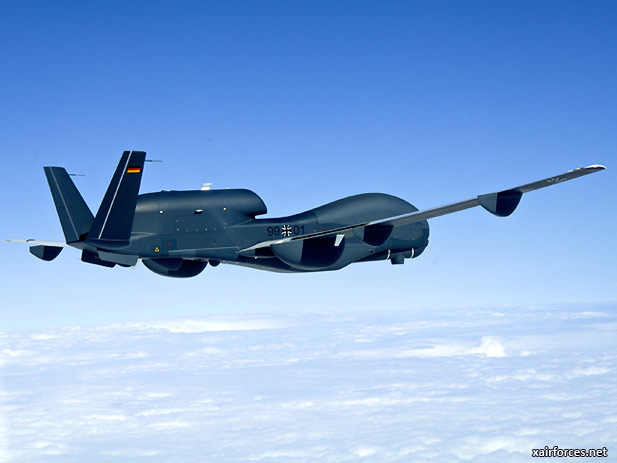
Northrop Grumman responds to Euro Hawk concerns

U.S. defense contractor Northrop Grumman said on Monday they remain fully committed to the development of the Euro Hawk unmanned aircraft system of record, and the critical capabilities the system will provide the German armed forces and its allies, responding to recent media reports that highlighted a series of challenges in the program.
The Euro Hawk, developed and built for the German Ministry of Defence, is the first international derivative of Northrop’s combat-proven RQ-4 Global Hawk High-Altitude, Long-Endurance aircraft.
Euro Hawk will be equipped with a new signals intelligence mission system developed by Cassidian, providing standoff capability to detect electronic intelligence and communications intelligence emitters.
With a wingspan larger than a commercial airliner, endurance of more than 30 hours and a maximum altitude of more than 60,000 feet, Euro Hawk is an interoperable, modular and cost-effective replacement to the aging fleet of manned Breguet Atlantic aircraft, which have been in service since 1972.
But recent media reports indicate there are challenges with Euro Hawk's flight control system, as well as excessive costs associated with completing airworthiness certification. Northrop says these reports are inaccurate.
“The full Euro Hawk system, including the mission control system and the sensor, has performed flawlessly and safely throughout the entire flight test program,” Northrop said in a press statement on Monday. Europe’s lead aerospace company EADS and Northrop Grumman will continue to work with the customer “to address any concerns they may have with the system; and the team will provide an affordable and achievable plan to complete flight testing of the initial asset and the eventual production and fielding of the full system of four additional aircraft."
Source: By Keith Stein, DC Aviation News Examiner News - 27 May 2013
Photo: The German Air Force Northrop Grumman Euro Hawk Unmanned Aircraft (Photo by Northrop Grumman and examiner.com)
(27.05.2013)
|